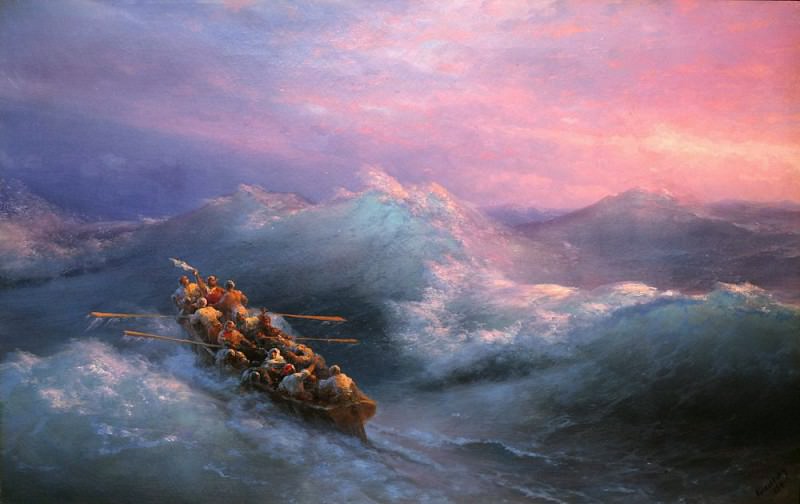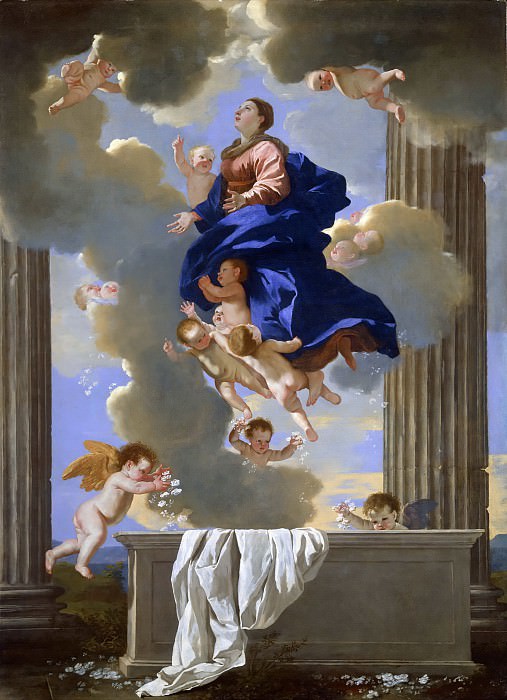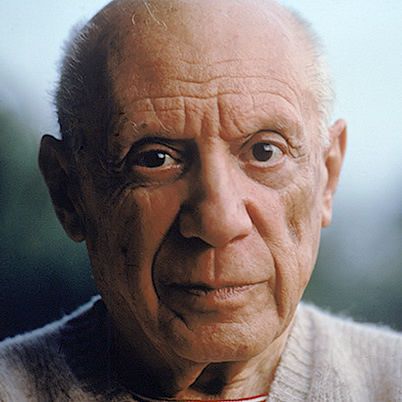Jason Brooks Art: A Journey Through Modern Realism
Jason Brooks stands as a formidable figure in the world of contemporary art, captivating audiences with his detailed and emotionally resonant works. His art transcends the boundaries of traditional realism, embedding a profound narrative within each canvas. Brooks' unique style blends hyperrealism with an abstract sensibility, allowing viewers to immerse themselves in the complexities of human emotion, societal reflections, and the very essence of existence. This exploration delves into the life and artistry of Jason Brooks, examining the inspirations, techniques, and impact that define his remarkable body of work.
The Genesis of an Artist
Born in 1969, Jason Brooks grew up in a world filled with vibrant colors, diverse cultures, and a rich tapestry of experiences that would later inform his artistic journey. From a young age, Brooks exhibited a natural talent for drawing, often sketching portraits and scenes from his imagination. His early exposure to the works of classical artists, combined with a fascination for the intricacies of the human form, laid the foundation for his future career.
Brooks pursued formal education in the arts, studying at the prestigious Chelsea College of Arts and later at Goldsmiths, University of London. These formative years were instrumental in honing his technical skills and broadening his understanding of art history and theory. It was during this time that Brooks began to develop his distinctive approach to realism, blending meticulous detail with an exploration of abstract elements.
The Evolution of Style
Jason Brooks' early works were heavily influenced by the masters of the Renaissance, particularly their focus on human anatomy and the play of light and shadow. However, as he matured as an artist, Brooks began to push the boundaries of traditional realism. His work started to incorporate elements of abstraction, blurring the lines between reality and perception. This evolution was not merely a stylistic choice but a reflection of Brooks' desire to convey deeper meanings and emotions through his art.
One of the defining features of Brooks' style is his ability to capture the essence of his subjects with photographic precision while simultaneously infusing his paintings with a sense of the surreal. This juxtaposition creates a powerful visual impact, inviting viewers to question their perceptions and engage with the underlying themes of the artwork.
Techniques and Mediums
Brooks' mastery of technique is evident in the meticulous attention to detail that characterizes his work. He often begins with a detailed sketch, carefully planning the composition and ensuring that every element is in harmony. His use of light and shadow is particularly striking, with each brushstroke contributing to the overall depth and realism of the piece.
In terms of mediums, Brooks primarily works with oil paints, a choice that allows him to achieve the rich textures and subtle gradations of color that are hallmarks of his style. He often spends months on a single painting, layering colors and refining details to achieve the desired effect. This dedication to his craft is a testament to Brooks' commitment to excellence and his relentless pursuit of artistic perfection.
Themes and Inspirations
The themes explored in Jason Brooks' art are as diverse as they are profound. His work often delves into the complexities of the human experience, exploring themes such as identity, memory, and the passage of time. Brooks is particularly interested in the interplay between reality and perception, a concept that is evident in many of his paintings.
One of the recurring motifs in Brooks' work is the human face. His portraits are not mere representations of physical appearance but are imbued with a sense of psychological depth. Each face tells a story, revealing the inner thoughts and emotions of the subject. Brooks' ability to convey such intricate details has earned him recognition as one of the leading portrait artists of his generation.
In addition to his focus on the human form, Brooks also draws inspiration from the natural world. His landscapes and still lifes are infused with a sense of tranquility, capturing the beauty and serenity of nature. Yet, even in these works, there is often an undercurrent of tension, a reminder of the impermanence of life and the inevitability of change.
Impact and Legacy
Jason Brooks' art has left an indelible mark on the contemporary art scene. His works have been exhibited in galleries and museums around the world, garnering critical acclaim and attracting a diverse audience. Collectors and art enthusiasts alike are drawn to Brooks' ability to merge realism with abstraction, creating works that are both visually stunning and intellectually engaging.
Brooks' influence extends beyond his own work, as he has inspired a new generation of artists to explore the boundaries of realism and abstraction. His commitment to his craft and his willingness to experiment with different techniques and styles have set a new standard in the art world. As a result, Brooks is not only celebrated for his artistic achievements but also for his contributions to the evolution of contemporary art.
Conclusion
Jason Brooks stands as a beacon of modern realism, an artist whose work transcends the conventional boundaries of art. His ability to capture the intricacies of the human experience, combined with his technical prowess, has earned him a place among the most respected artists of his time. Through his exploration of themes such as identity, memory, and perception, Brooks invites viewers to engage with his work on a deeper level, challenging them to see the world through his eyes.
As we look to the future, it is clear that Jason Brooks' legacy will continue to influence the art world for years to come. His work serves as a reminder of the power of art to convey complex ideas and emotions, and his dedication to his craft inspires both artists and art lovers alike. In an ever-changing world, Brooks' art remains a constant, a testament to the enduring power of creativity and the human spirit.
Jason Brooks stands as a formidable figure in the world of contemporary art, captivating audiences with his detailed and emotionally resonant works. His art transcends the boundaries of traditional realism, embedding a profound narrative within each canvas. Brooks' unique style blends hyperrealism with an abstract sensibility, allowing viewers to immerse themselves in the complexities of human emotion, societal reflections, and the very essence of existence. This exploration delves into the life and artistry of Jason Brooks, examining the inspirations, techniques, and impact that define his remarkable body of work.
The Genesis of an Artist
Born in 1969, Jason Brooks grew up in a world filled with vibrant colors, diverse cultures, and a rich tapestry of experiences that would later inform his artistic journey. From a young age, Brooks exhibited a natural talent for drawing, often sketching portraits and scenes from his imagination. His early exposure to the works of classical artists, combined with a fascination for the intricacies of the human form, laid the foundation for his future career.
Brooks pursued formal education in the arts, studying at the prestigious Chelsea College of Arts and later at Goldsmiths, University of London. These formative years were instrumental in honing his technical skills and broadening his understanding of art history and theory. It was during this time that Brooks began to develop his distinctive approach to realism, blending meticulous detail with an exploration of abstract elements.
The Evolution of Style
Jason Brooks' early works were heavily influenced by the masters of the Renaissance, particularly their focus on human anatomy and the play of light and shadow. However, as he matured as an artist, Brooks began to push the boundaries of traditional realism. His work started to incorporate elements of abstraction, blurring the lines between reality and perception. This evolution was not merely a stylistic choice but a reflection of Brooks' desire to convey deeper meanings and emotions through his art.
One of the defining features of Brooks' style is his ability to capture the essence of his subjects with photographic precision while simultaneously infusing his paintings with a sense of the surreal. This juxtaposition creates a powerful visual impact, inviting viewers to question their perceptions and engage with the underlying themes of the artwork.
Techniques and Mediums
Brooks' mastery of technique is evident in the meticulous attention to detail that characterizes his work. He often begins with a detailed sketch, carefully planning the composition and ensuring that every element is in harmony. His use of light and shadow is particularly striking, with each brushstroke contributing to the overall depth and realism of the piece.
In terms of mediums, Brooks primarily works with oil paints, a choice that allows him to achieve the rich textures and subtle gradations of color that are hallmarks of his style. He often spends months on a single painting, layering colors and refining details to achieve the desired effect. This dedication to his craft is a testament to Brooks' commitment to excellence and his relentless pursuit of artistic perfection.
Themes and Inspirations
The themes explored in Jason Brooks' art are as diverse as they are profound. His work often delves into the complexities of the human experience, exploring themes such as identity, memory, and the passage of time. Brooks is particularly interested in the interplay between reality and perception, a concept that is evident in many of his paintings.
One of the recurring motifs in Brooks' work is the human face. His portraits are not mere representations of physical appearance but are imbued with a sense of psychological depth. Each face tells a story, revealing the inner thoughts and emotions of the subject. Brooks' ability to convey such intricate details has earned him recognition as one of the leading portrait artists of his generation.
In addition to his focus on the human form, Brooks also draws inspiration from the natural world. His landscapes and still lifes are infused with a sense of tranquility, capturing the beauty and serenity of nature. Yet, even in these works, there is often an undercurrent of tension, a reminder of the impermanence of life and the inevitability of change.
Impact and Legacy
Jason Brooks' art has left an indelible mark on the contemporary art scene. His works have been exhibited in galleries and museums around the world, garnering critical acclaim and attracting a diverse audience. Collectors and art enthusiasts alike are drawn to Brooks' ability to merge realism with abstraction, creating works that are both visually stunning and intellectually engaging.
Brooks' influence extends beyond his own work, as he has inspired a new generation of artists to explore the boundaries of realism and abstraction. His commitment to his craft and his willingness to experiment with different techniques and styles have set a new standard in the art world. As a result, Brooks is not only celebrated for his artistic achievements but also for his contributions to the evolution of contemporary art.
Conclusion
Jason Brooks stands as a beacon of modern realism, an artist whose work transcends the conventional boundaries of art. His ability to capture the intricacies of the human experience, combined with his technical prowess, has earned him a place among the most respected artists of his time. Through his exploration of themes such as identity, memory, and perception, Brooks invites viewers to engage with his work on a deeper level, challenging them to see the world through his eyes.
As we look to the future, it is clear that Jason Brooks' legacy will continue to influence the art world for years to come. His work serves as a reminder of the power of art to convey complex ideas and emotions, and his dedication to his craft inspires both artists and art lovers alike. In an ever-changing world, Brooks' art remains a constant, a testament to the enduring power of creativity and the human spirit.















